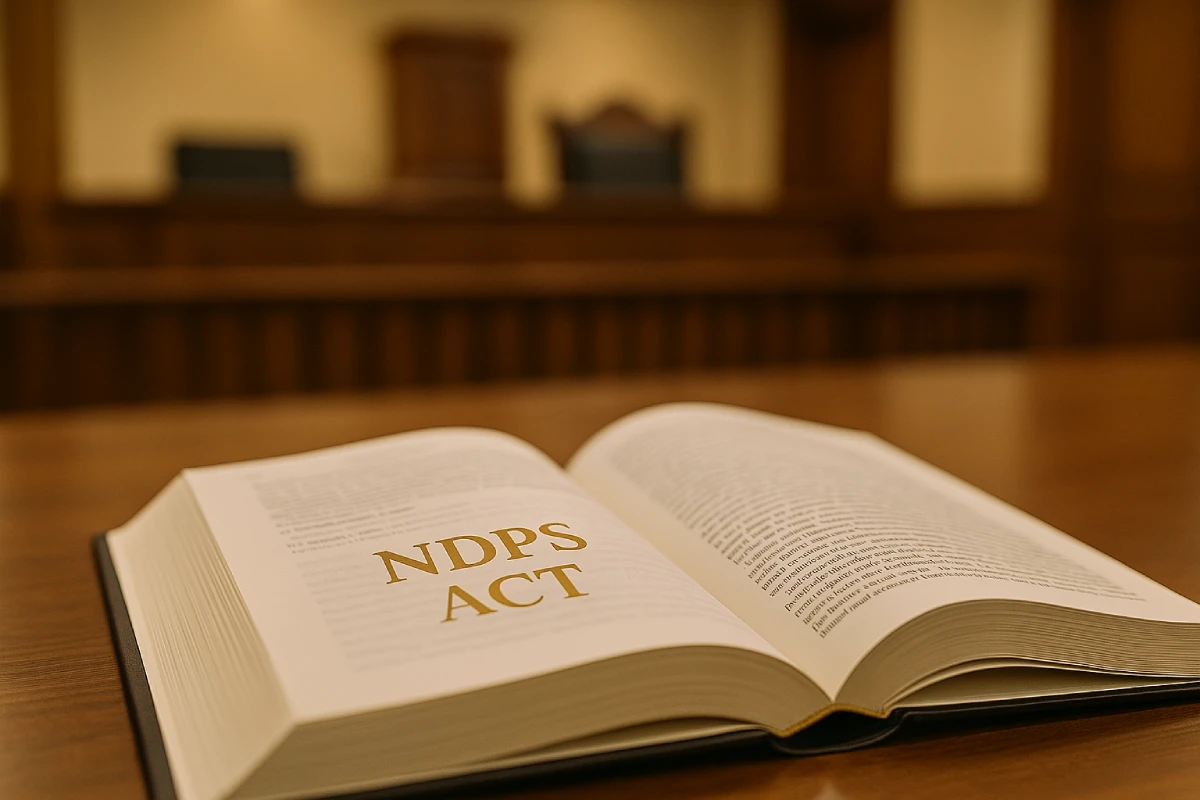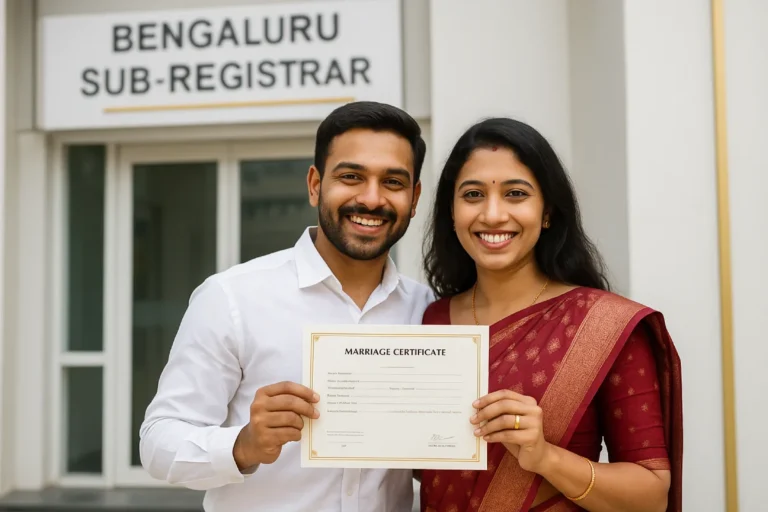Defending Drug‑Possession Charges Under the NDPS Act in Karnataka
Facing a drug possession charge in Karnataka? Assert your main protection right away. Ask the officer to write down the tip-off (Section 42). Choose to be searched by a magistrate or a gazetted officer (Section 50). Ensure that every seized packet is sealed, labeled, and sent to the lab within 48 hours (Section 57). These simple moves can pierce the NDPS Act’s presumption of guilt, strengthen your bail plea, and even lead to acquittal. This guide explains each step. It covers bail strategy, forensic challenges, and rehabilitation options. You will know how to defend yourself or a loved one from the very first day.
Why Knowing the NDPS Act Matters
The Act changes the usual rules of criminal law. Understanding it can mean the difference between freedom and a long sentence.
The NDPS Act is the main law in India for controlling narcotic drugs and psychotropic substances. It was enacted in 1985. Karnataka’s police, Customs, the Directorate of Revenue Intelligence (DRI), and the Narcotics Control Bureau (NCB) have special powers. They use these powers every day. They focus on Bengaluru’s nightlife areas, Mangaluru’s ports, and highway checkpoints.
Unlike other penal statutes, the NDPS Act presumes guilt once ‘possession’ is shown, forcing an accused to prove innocence. Bail is harder, sentences are harsher, and procedural lapses, though common, are vigorously contested. This guide arms you with the knowledge to navigate each stage.
Snapshot of How an NDPS Case Progresses
Understanding the typical NDPS timeline empowers you to take smart, timely legal steps. You can decide when to seek bail, push for faster lab tests, or challenge procedural lapses early.
|
Stage |
What Happens |
Typical Time Frame |
|---|---|---|
|
Intelligence & Search |
Tip‑off received; search carried out under Sections 42–43. |
Hours–Days |
|
Seizure & Arrest |
Substance seized; panchanama drawn; accused arrested. |
Same day |
|
Remand & Custody |
Produced before the magistrate within 24 hrs. |
24 hrs |
|
Forensic Testing |
Samples were sent to FSL. |
2–8 weeks in Karnataka |
|
Charge‑sheet |
Police/NCB file report (Section 193 of the Bharatiya Nagarik Suraksha Sanhita (BNSS) (earlier Section 173 CrPC)). |
60–180 days |
|
Trial & Evidence |
Examination of witnesses, cross‑examination. |
1–3 years |
|
Judgment & Sentencing |
The court decides guilt and imposes a sentence. |
Seek a default bail if delayed beyond the statutory limit. |
|
Appeal |
High Court/Supreme Court review. |
1–5 years |
What Counts as “Possession” Under the NDPS Act
Possession is broader than simply holding drugs in your pocket alone. Courts also recognize conscious and constructive possession, where you knowingly control substances stored elsewhere or share access with others.
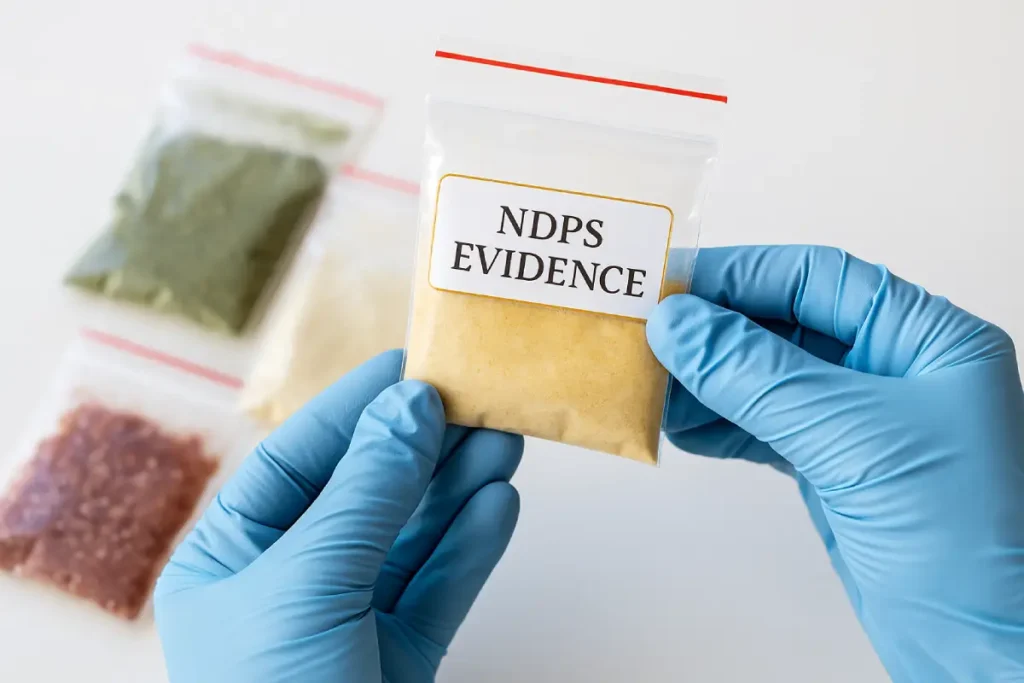
Indian courts have recognized three interlinked flavors of possession:
- Physical possession – the drug is found directly on the body or clothing.
- Conscious possession – the accused knows of the substance and can exercise control (e.g., stash under a mattress at home).
- Constructive possession – multiple persons share control (e.g., drugs in a common car boot).
Quantity Classification and Penalties
Punishment rises steeply as the seized quantity moves from small to commercial levels. Even a minor weighing error can push an accused across thresholds and invite decades of harsher imprisonment.
|
Quantity Type |
Example (Heroin) |
Relevant Section |
|---|---|---|
|
Small |
≤ 5 g |
Section 27 |
|
Intermediate |
> 5 g – < 250 g |
Section 21(b) |
|
Commercial |
≥ 250 g |
Section 21(c) |
Tip: Weighing scales at the seizure spot must be calibrated. Courts have acquitted where the ‘commercial quantity’ threshold was crossed only after lab testing.
Agencies That Investigate NDPS Offences
Different agencies, like the police, NCB, Customs, and DRI, each issue their standing orders and manuals. Understanding which protocol governs your case helps you spot breaches quickly and file timely objections.
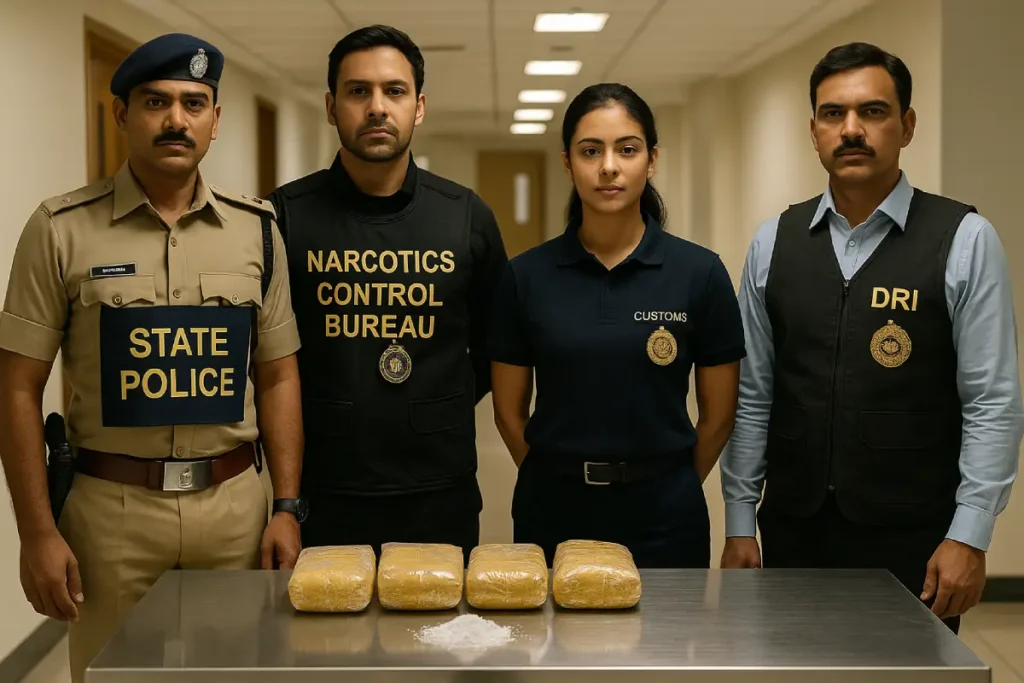
|
Agency |
Jurisdiction in Karnataka |
Special Powers |
|---|---|---|
|
State Police (Excise & Law‑and‑Order) |
All districts |
Register FIR, conduct raids, and investigate till trial. |
|
Narcotics Control Bureau (NCB) |
Inter‑state & international networks |
Operate under MHA; can summon and seize property. |
|
Directorate of Revenue Intelligence (DRI) |
Track the smuggling of narcotics concealed in cargo. |
Enforce the Customs Act + NDPS Act at entry points. |
|
Customs |
Coastal & airport zones |
Enforce Customs Act + NDPS Act at entry points. |
Each agency must still follow Sections 42, 50 & 57—but their standing orders differ. Defense counsel should request the agency‑specific Standing Order booklet to check compliance.
Key Procedural Safeguards You Can Invoke
Following every procedural rule creates your very first shield against an NDPS charge. Documented lapses by investigators can shift the burden and often become your most powerful courtroom defense. Early legal advice helps capture and highlight these mistakes effectively.
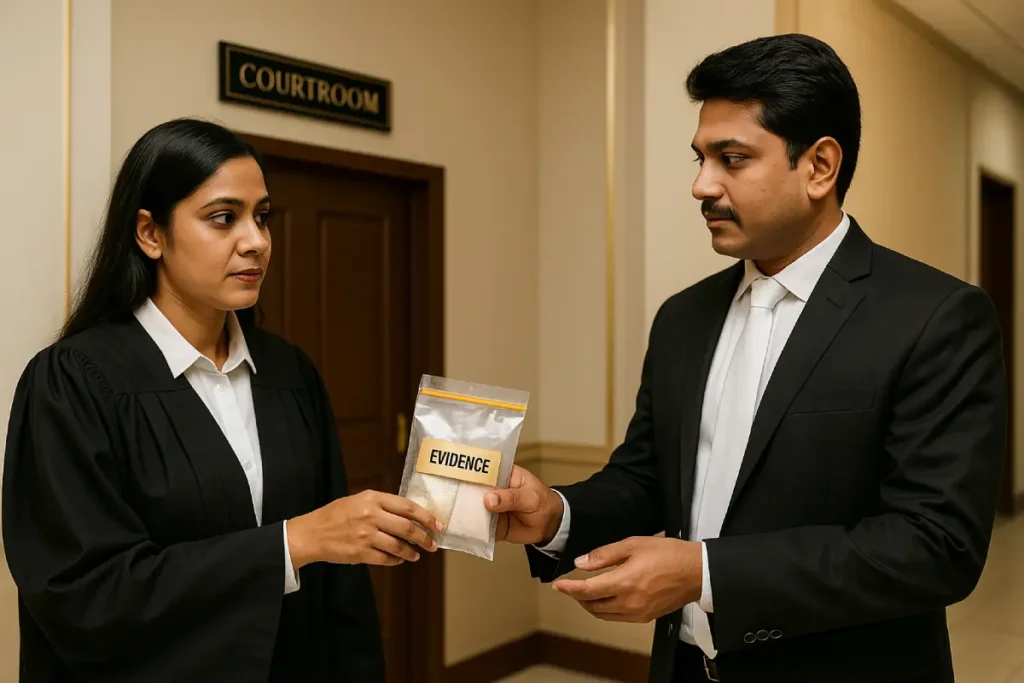
Search & Seizure Requirements (Sections 42–43)
Officers must act on recorded intelligence and report promptly.
- Written note: The officer must write down secret information. This is called the ‘Section 42 note.’ The officer must send it to a superior within 72 hours.
- Magistrate’s approval:
- A warrant is needed for searches of private places at night.
- Nighttime is defined as the period from sunset to sunrise.
- Emergency reasons must be recorded if a warrant is not available.
- Public-place searches: Bus stands, train cars, and markets are covered by Section 43. This section eases warrant rules but still requires a ‘reasonable belief.’
The Right to Choose a Gazetted Officer or Magistrate (Section 50)
Officers must tell you this choice before a body search; the right does not extend to vehicle or house searches.
In State of Punjab v. Baldev Singh (1999), the Supreme Court held that failure to inform is fatal. Karnataka tenure‑track judgments (e.g., Basavaraj v. State, 2023) echo this and have overturned convictions.
Reporting Obligations (Section 57)
Arrest and seizure reports must reach the superior within 48 hours.
Delays without “satisfactory explanation” have persuaded courts to doubt bona fides and use them to question credibility.
The Presumption of Guilt And How to Rebut It (Sections 35 & 54)
The NDPS Act shifts the burden of proof onto the accused, creating an initial presumption of guilt. Yet diligent defense work, highlighting procedural flaws and alternative explanations, can still discharge that heavy burden.
To rebut, you can present:
- Ownership documents: Show that the premises belong to another and you lack access.
- Employment records: For drivers or couriers unknowingly transporting parcels.
- Lack of knowledge: Medical or psychiatric evidence proving incapacity or coercion.
- Third‑party testimony: Co‑workers or neighbors confirming absence or ignorance.
Key ruling: Mohd. Sahabuddin v. State of Assam (2012), mere proximity to drugs is insufficient; conscious possession must be shown.
Bail Challenges Under the NDPS Act (Section 37)
Section 37 imposes tough bail conditions when the seized drugs meet commercial quantity thresholds. However, fresh Supreme Court and High Court rulings create exceptions where evidence appears weak or custody drags.
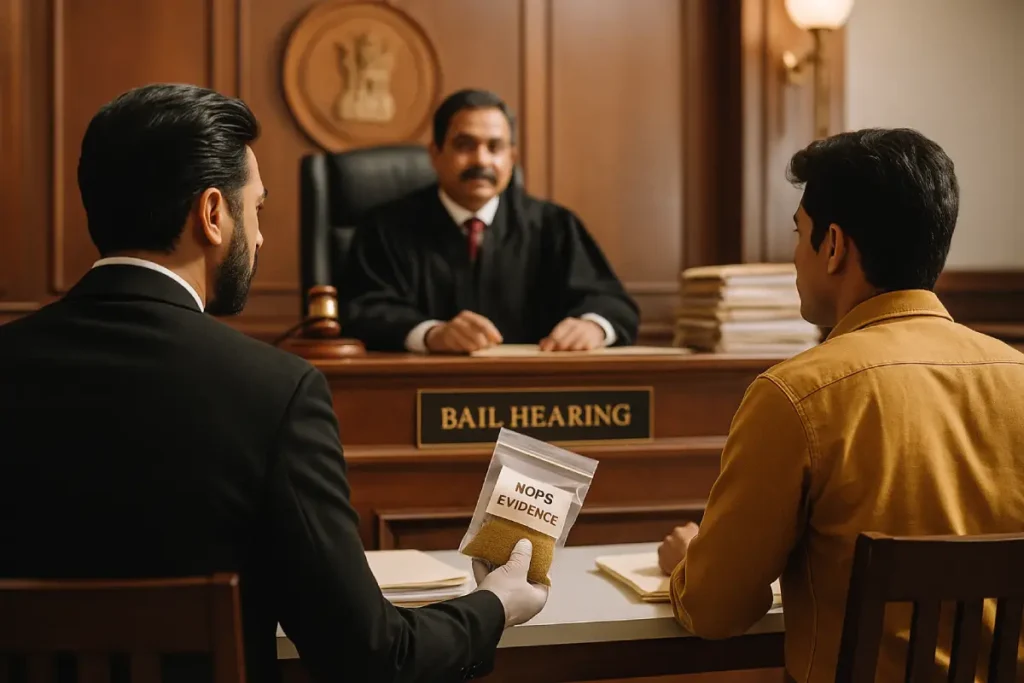
Courts apply a twin test:
- Prima facie satisfaction of innocence – procedural defects, weak evidence.
- No likelihood of repeat offense – stable job, family ties, community roots.
2024–25 Supreme Court & High Court Trends in Bail
Recent rulings refine the “reasonable grounds” test and emphasize human‑rights proportionality.
- Frank Vitus v. Narcotics Control Bureau (2024 INSC 479): The Supreme Court stated that trial judges need to make clear decisions. They must find both innocence and non-repetition. It also reiterated that prolonged pre‑trial custody (over 50 % of the likely sentence) tilts the balance towards bail.
- Shahrukh v. State of Karnataka (KAR HC, 5 July 2024): The Karnataka High Court granted bail. The prosecution could not prove conscious possession. The accused had already spent 28 months in custody.
- Delay in Trials:
Satender Kumar Antil (2022) mentions that many undertrials have been released by the 2024 benches.
These individuals have waited for 3 to 5 years without any real progress. - Health grounds & humanitarian factors: Chronic illnesses (HIV, TB), pregnancy, and advanced age remain persuasive, especially post‑pandemic.
- Gender & juvenility: Courts are increasingly sensitive to women defendants and young adults when weighing “reasonable grounds.”
Defence Tips for Bail Applications
Practical pointers to tilt the balance in your favor.
- Spotlight Section 50 non‑compliance or chain‑of‑custody lapses in the bail affidavit.
- Submit medical certificates to argue humanitarian grounds.
- Offer local sureties and regular police station reporting to assuage flight risk concerns.
- Invoke Section 64A rehabilitation for addicts willing to undergo treatment.
Forensic Reports and Chain of Custody
The sample’s integrity forms the backbone of any NDPS prosecution and must remain untainted throughout handling. Even minor seal damage or mislabeling can destroy credibility and collapse the case in court.
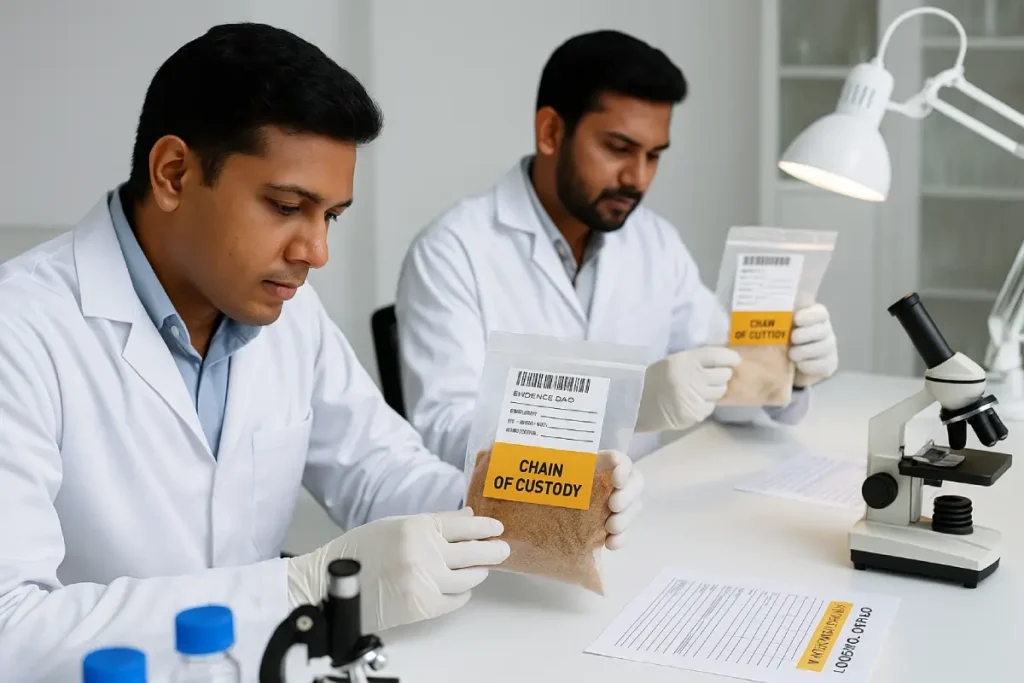
- Sealing & labeling: Each packet must carry a unique seal and signature. Photograph the seal during seizure and remand.
- Sample quantity: At least 5 g for heroin, 25 g for ganja—per Standing Order 1/88.
- Transit time: Karnataka HC considers >15‑day delay suspicious unless explained.
- Tamper‑proof bags: Since 2021, agencies have used bar‑coded pouches; mismatched codes raise red flags.
Case Watch: Jitendra v. State of M.P. (2004) chain breaks invite acquittal.
Are Confessions to the Police Admissible?
Usually, no country protects the right against self‑incrimination.
Tofan Singh v. State of Tamil Nadu (2020) decided that officers under Section 53 are ‘police officers’. This is about Sections 23–24 of the Bharatiya Sakshya Adhiniyam (BSA). These sections were formerly known as Sections 25–26 of the Evidence Act. Thus, any confession before them is inadmissible unless made under Section 67 to a magistrate. The defense should move to exclude such statements at the earliest.
Rehabilitation Instead of Jail Section 64A
The law treats addiction as a public health issue, not only a crime when quantities are small. This recognition opens doors to treatment programs and can suspend prosecution under Section 64A.
Eligibility Criteria
- The quantity must be small (see Table Section 27).
- The accused must be addicted and certified by a government medical officer.
- A bond to complete the de‑addiction program is required.
De‑addiction Centres in Karnataka
|
Centre |
Location |
Contact |
|---|---|---|
|
Bengaluru |
080‑2699‑5110 | |
|
Dharwad |
0836‑244‑1234 | |
|
District Hospital Substance Unit |
Ballari |
0839‑222‑3344 |
Completion certificate leads to withdrawal of prosecution—an option worth exploring for first‑time users.
Practical Defence Strategies in Karnataka Courts
Blend statutory rights with keen forensic scrutiny and modern technology to build a robust defense. Also consider human factors such as addiction, coercion, or rehabilitation prospects to influence judicial discretion.
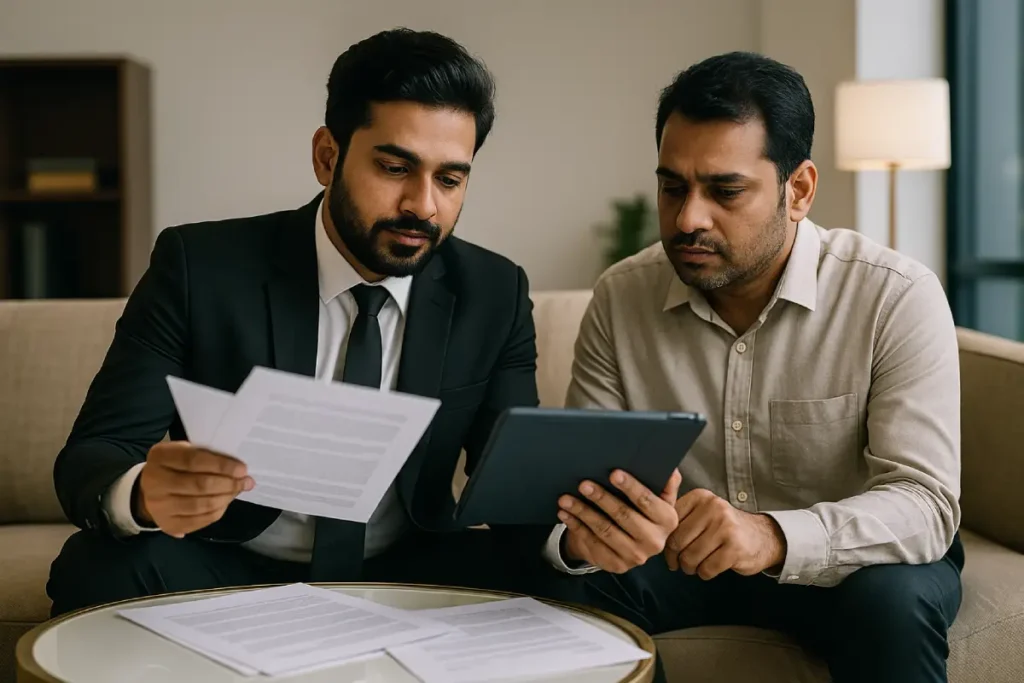
- Obtain certified copies of the early FIR, seizure memo, Section 42 note, and FSL report.
- Demand CCTV footage/body‑cam videos, non‑preservation can invoke adverse inference.
- Bring in independent experts, digital forensics for WhatsApp chats, and chemists for purity levels (important in synthetic drugs).
- Track sample weight discrepancies, even a few grams can downgrade from ‘commercial’ to ‘intermediate.’
- Petition for sample re‑test. If two contradictory reports, the benefit of the doubt favors the accused.
- File writ in High Court or speedy FSL analysis or quashing blatantly illegal seizures.
- Invoke Article 21’s right to a speedy trial if proceedings drag beyond a reasonable period.
Landmark Karnataka Judgments Under the NDPS Act
State precedent in Karnataka shapes how trial courts interpret and apply the NDPS Act. Familiarity with leading High Court decisions allows defense lawyers to argue persuasively and secure procedural fairness.
|
Case |
Citation |
Ratio Decidendi |
|---|---|---|
|
Basavaraj v. State of Karnataka |
2023 (2) KCCR 455 |
Section 50 notice must be in writing and acknowledged. |
|
Hemalatha v. State |
ILR 2022 Kar 213 |
2021 SCC Online Kar 892 |
|
Shivakumar v. Directorate of Revenue Intelligence |
2021 SCC Online Kar 892 |
DRI officers are ‘police’ post‑Tofan Singh; confession inadmissible. |
Frequently Asked Questions (FAQ)
This section serves as a quick reference guide for common questions people ask about narcotics cases. It distills clear answers on bail, searches, evidence rules, and rehabilitation, helping readers navigate the law confidently.
Can I get anticipatory bail in an NDPS case?
Anticipatory bail remains rare when large quantities trigger severe NDPS penalties. Courts can grant bail in cases involving small or intermediate quantities. They do so when the prosecution’s evidence appears tenuous, procedural errors exist, or forensic delays occur. Promptly applying solid defense arguments improves success odds.
Does a foreign national get different treatment?
NDPS Act applies to anyone in India, regardless of citizenship. Embassy representatives must be notified promptly upon arrest. Courts may factor in visa status, potential overstay, and diplomatic protocols when granting bail. These factors can affect bail conditions and ensure timely consular access.
Are mobile chat screenshots enough to prove ‘drug dealing’?
Chat screenshots serve only as secondary evidence and cannot suffice alone. The prosecution must produce primary digital records such as authenticated server logs and cryptographic hash values. They must follow Evidence Act Section 65B certification and maintain a strict chain of custody protocols.
What if the police did not take an inventory photograph?
The absence of inventory photographs is not automatically fatal to the prosecution. However, missing or poor-quality photos strengthen defense claims of evidence planting or tampering. When investigators fail to capture visual proof alongside documented procedures, courts often doubt the integrity of the seizure process.
How long does an NDPS trial usually last in Karnataka?
NDPS trials in Karnataka frequently last between 18 and 36 months due to heavy court backlogs. When pre-trial custody exceeds fifty percent of the prescribed maximum sentence, courts increasingly favor bail. Defendants should monitor custody duration and cite Article 21 to argue for release.
Impact of the New Criminal Codes (BNS, BNSS, BSA)
India’s landmark criminal code reforms under BNSS, BNS, and BSA come into force on 1 July 2025. They oversee investigation, arrest, and evidence steps in NDPS cases. They require electronic filing and strict custody logs to boost transparency and aid defense scrutiny. Criminal Defense lawyers must adapt promptly to these procedural changes.
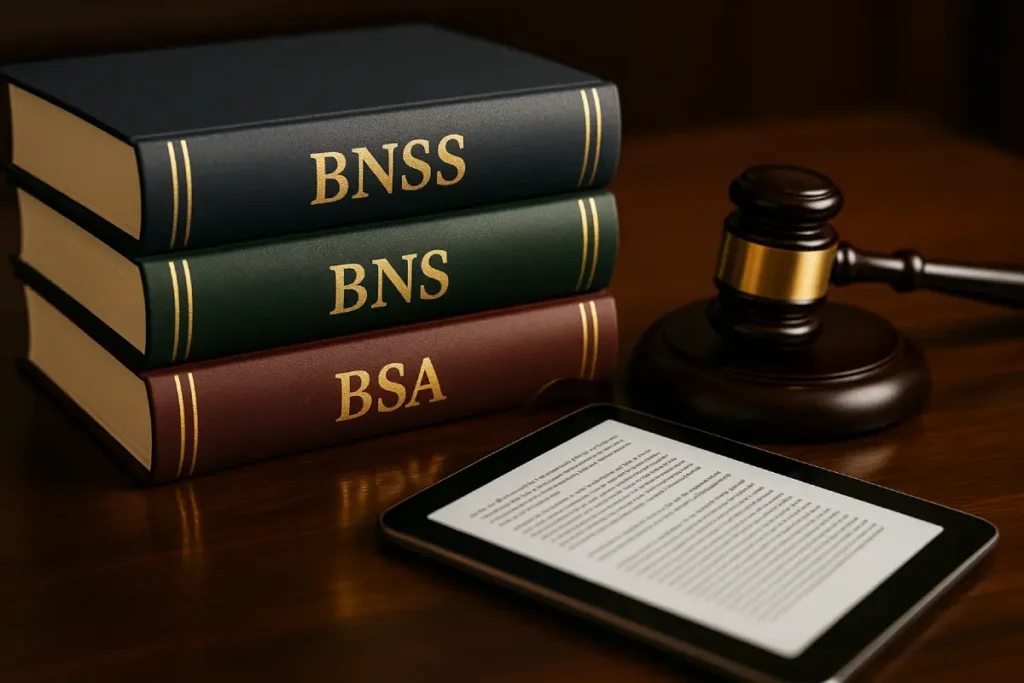
- Chargesheets: Section 193 BNSS now replaces Section 173 CrPC. Police can file the report electronically and must include a log of electronic device custody.
- Further investigation: Section 190 BNSS allows supplementary reports. However, the trial court must record reasons for allowing them.
- Confessions: Sections 23–24 of the Bharatiya Sakshya Adhiniyam bar police confessions closely mirror Tofan Singh’s principles.
- Terminology: The NDPS Act keeps its section numbers. However, defense lawyers must use the new rules for bail and trial applications filed after July 2025.
These updates do not dilute NDPS safeguards; if anything, electronic filing and stricter custody logs can strengthen defense scrutiny.
Conclusion: Balancing Enforcement With Rights Balancing Enforcement With Rights
Rights are not suspended even under stringent laws; vigilance can prevent miscarriage of justice.
The NDPS Act seeks to eradicate drug trafficking, yet the Constitution guarantees life and personal liberty. Karnataka’s courts consistently hold that strict law cannot override fair trial and due process. By insisting on procedural compliance, challenging presumptions, invoking rehabilitation provisions, and staying informed, defendants can craft robust, lawful defenses upholding justice for both society and individuals.

